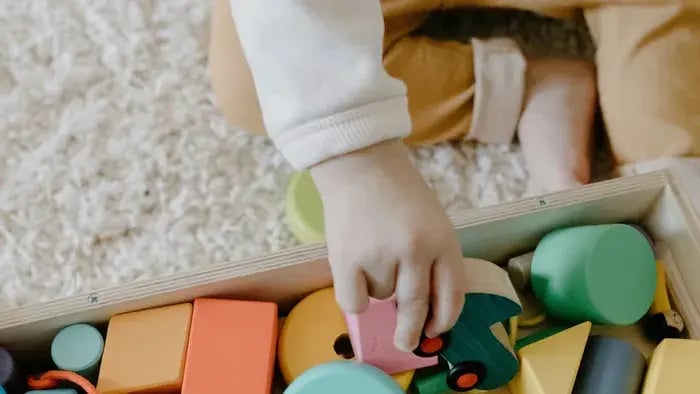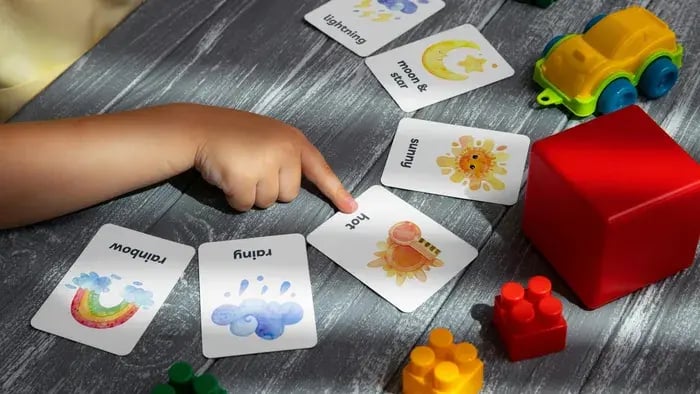Critical Thinking Exercises for Kids to Boost Problem-Solving Skills
- Jigsaw Puzzle
- Sorting Games
- Card Games
- Obstacle Courses
- Role Play
- Debating
Introduction
As a child grows up, they learn how to perform multiple tasks by understanding essential life skills. Such life skills may help a child think more creatively and easily solve everyday problems. Critical thinking and problem-solving skills come in handy at each stage of a child's life. These help your kid understand concepts fundamentally and promote the originality of thoughts.
While studying in class, your child may encounter obstructions while understanding a concept. Similarly, your kid may also encounter some communication barriers with their teachers or peers. During this time, critical thinking and problem-solving skills can come in handy. As per The Development of Problem Solving in Young Children: A Critical Cognitive Skill, published in 2011, critical thinking and problem-solving skills may also enhance a child's confidence level and encourage intrinsic motivation.
Critical Thinking Exercises to Promote Problem-Solving Among Kids
Games and exercises can be one of the most useful tools to enhance your child's problem-solving ability. Here are some mentally stimulating games for your child to develop critical thinking and problem-solving skills.
Jigsaw Puzzle

As per the Author Manuscript published in 2011, a child who continuously indulges in solving jigsaw puzzles is more likely to perform better in school than kids who don't. Moreover, playing jigsaw puzzles can also help reduce the risk of dementia among kids. Such a puzzle requires the kid to put different pieces of the puzzle together to make a meaningful picture. It would require the child to constantly think critically and devise multiple possible solutions to get a favorable outcome.
Sorting Games

Such games can be specifically beneficial for kids who are just learning about the shapes, colors, and sizes of various subjects. Parents can randomly put several objects in a box and then ask the child to segregate them based on color or any other physical feature. The game would continuously engage the child to make the right decisions and stay active throughout the process.
Card Games

As per the Author Manuscript published in 2021, playing numerical card games may help enhance the child's mathematical understanding. It may also help in improving the overall cognitive function of a child. Other than numerical card games, parents can also make their kids play with picture cards, or flashcards, to improve memory and their ability to retain information. Parents may also introduce concepts like types of animals, geometry, shapes, and other such things to kids through cards.
Obstacle Courses
It is a type of both mental and physical exercise for kids that can help enhance their logical thinking and promote agility. As per research published in Military Psychology in 2021, obstacle courses are actively used in military camps to enhance retention power and critical thinking skills among soldiers. Hence, it can be an effective way of getting your child to get a workout done while also enhancing their ability to solve problems. Such an obstacle course can be designed at home, or you may take your child to a commercial obstacle park as well.
Role Play
Role-play is a fun and mentally stimulating exercise for your child. This activity requires the child to act like a certain character in a particular context. During this time, the child is expected to deliver dialogues while interacting with another child who is also enacting a particular character. As per The Importance of Role Play for Children’s Development of Socio-Emotional Competencies, published in 2014, role-play activities may also teach a child how to act in real-world situations. It may draw a better understanding of how to make the right decisions and think critically.
Debating
Debating is yet another very popular way of making the child more spontaneous and think of logical explanations spontaneously. It is an activity in which kids are divided into different teams and are supposed to put forward their counter-arguments for or against a particular topic. As per Debate: a teaching-learning strategy for developing competence in communication and critical thinking, published in 2007, debating can help enhance teamwork among kids while also making them think more critically and fostering original thinking.
Conclusion
All these exercises and activities can positively impact a child's ability to resolve problems and increase their awareness of their environment. Moreover, it may also make the child more optimistic and confident about their life decisions, transforming them into a self-reliant individual.
Pakhi writes with the belief that dessert isn’t just a dish—it’s a mood. Her work blends storytelling with tips, turning timeless treats and trendy bites into accessible moments of comfort, celebration, and creative expression.
The views expressed are that of the expert alone.
The information provided in this content is for informational purposes only and should not be considered a substitute for professional medical advice, diagnosis, or treatment. Always seek the advice of your physician or another qualified healthcare provider before making any significant changes to your diet, exercise, or medication routines.
















